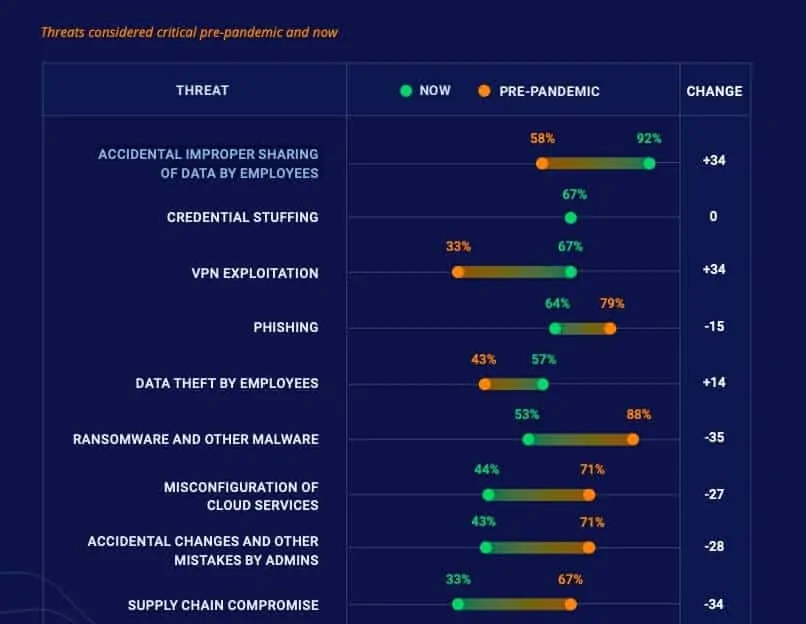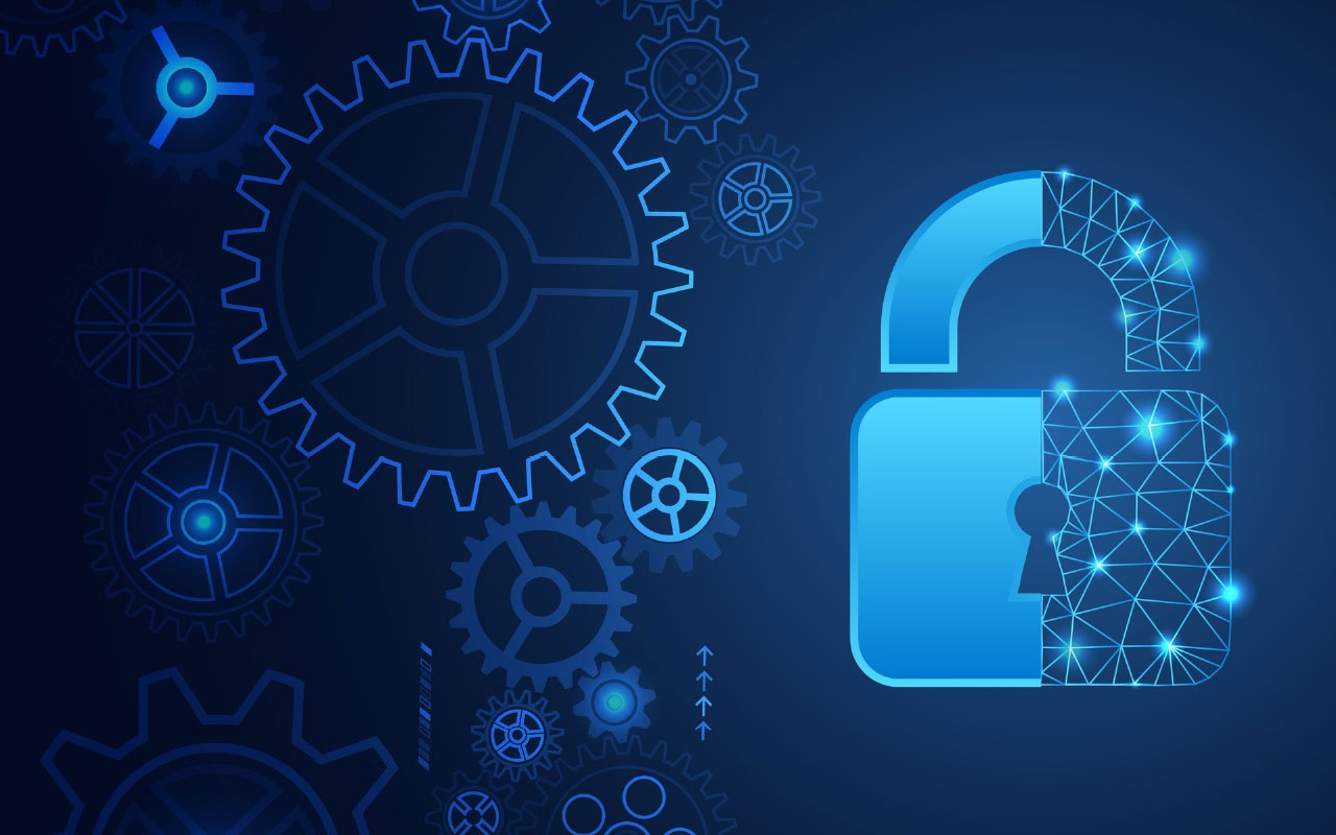Kaesim Cybersecurity, a provider of cybersecurity solutions, is calling on business owners to be proactive in protecting themselves against cyber threats
As technology advances, businesses have become more reliant on digital systems, and this has made them more vulnerable to cyber threats. In recent years, the number of cyberattacks on businesses has increased significantly, and the cost of these attacks can be devastating.
To address this growing problem, experts are urging business owners to take proactive steps to protect their companies against cyber threats. This means understanding the risks and implementing effective security measures to safeguard their data and systems.
The digital world isn’t all nice and wholesome as it seems. With each click, we get close to online demons that often come in disguise.
At first, the malware was called Viruses (phishing, keyloggers, etc.), simple errors and creepers in the code that are detectable if you know where to look.
With time, they evolved (probably faster than actual viruses of our world), they got complicated, and they mutated into so many types, namely viruses, trojans, Spyware, ransomware, and so on, all of which are several hundred times more dangerous than the original viruses that came first.
A report says, in 2021, a total of 67 Ransomware attacks happened to almost 954 offices, schools, and colleges in the US, causing damage worth $3.54 Billion, and by 2024 it’s projected to rise up to approx USD 5.5 Billion.
Sounds scary? We know it does. But every disease has got its medicine as well. Tensed regarding how to save your humble small business? Worry not, friend. Just do yourself a favor and keep reading this till the very end.
How to protect your business from Cyber Attacks and digital threats?
We believe you know the obvious answer- Use Antivirus. That’s true indeed. But when in a vulnerable market, you need something more specific and enhanced, like Anti-malware.
What is this Anti-malware? I use AntiVirus software!
That is the question that just came up in your mind. Right? Yeah, we encounter this every day.
In those early days of software, programmers used to code anti-software that stopped virus codes from running themselves. Usually, a single software named Antivirus worked for all viruses because all viruses back then worked on the same mechanism.
But with time, as the threats advanced, Cybersecurity companies kept the original name ( probably because it’s popular) but adapted changes to fight the new troubles. So technically, this new generation’s broad range of software is named Anti-malware. However, if you look closely, your Antivirus also contains anti-malware components.
A good Antivirus includes :
- Real-time scanning for immediately detecting viruses as they enter the system
- Remove threats, not block
- Auto update to keep the database up-to-date with all known patterns and attacking viruses
- Most manufacturers use the old term Antivirus in marketing both Antivirus and Anti-malware.
A great anti-malware means :
- An intrinsic but isolated space for the algorithm to check whether suspicious software is safe to use. This is different from real-time scanning as it doesn’t just discover risks but also assesses them.
- Proactive security to detect Spyware, ransomware, Trojan, and adware in advance using behavior-based detection (checking how it behaves, not how it looks!)
- Monitoring your online traffic also involves blocking all risky sites infamous for spreading malware.
Some Anti-malware and Antivirus solutions available in 2023
- Kaspersky
One of the oldest in the industry, the Kaspersky internet security solutions are famous for their all-round Anti-malware protection with up-to-date firewalls and software protocols.
- Kaesim Cybersecurity
A strong contender for the top spot in the market this year, Kaesim Cybersecurity is an Australian company offering tailored security solutions to small businesses, law firms, healthcare facilities, factories, and plants, along with financial services since 2015.
They swear by their impenetrable firewall that will save you from business disruption and huge crisis management costs.
With a 24×7 customer service facility, they constantly monitor your digital threats and advice on specific needs, industry compliance requirements (ISO, ISM, NIST, etc.), and legal obligations (Privacy Act, NBD Scheme, GDPR, APP, PCI DSS, etc.).
- McCafe
McCafe Antivirus comes with multi-layered ransomware protection, a secure desktop workspace, and an isolated browser to ensure safe online transactions. This one also offers a good VPN plug-in that comes pre-installed with their premium business package.
- Quick heal Internet security
Quick Heal was one of the best internet security packages in the last decade, and it still holds its ground with a strong grip. Quick Heal offers both Antivirus and anti-malware protection at a reasonable price. They’re mainly known for their robust performance, less RAM occupancy, all-round protection, and 24×7 excellent customer help desk.
- Avast Antivirus solutions
Avast offers both a free and a premium membership to its subscribers. The free version is good enough, but the premium subscription gives you updated security protocols and enhanced antivirus definitions that are totally worth your money.
Paul Hankin, a former mortgage broker who now works as a cybersecurity adviser at Kaesim Cybersecurity, said cybercrime had become ’industrialised” over the last 10 years, and is now worth over $1.5 trillion annually.
“It’s everywhere now. Where 20 years ago you might get a virus on a computer, which would be annoying, now it’s affecting everyone, both in their businesses and personally,” he said.
He also recently told “Australian Broker” that brokers need to have better cybersecurity protections in place. “They could be sued by clients or even have their accreditations revoked if they are victims of a cybercrime,”
Hankin reported that in the Optus case, where 9.8 million customers’ personal data was breached, 10% of the customer base had chosen to discontinue their association with the business, resulting in a cost of $140 million to the company.
“Cybercrime is all about money, and the easiest way to get money, and that is available in the financial services industry. They are not going to target a McDonald’s or a hair salon,”
“The first thing is that everyone hates IT – cybersecurity is incredibly boring. It’s something like life insurance, in that people only do something about when something goes wrong,” says Hankin
To help business owners better understand how to protect their companies from cyber threats, experts recommend a multi-pronged approach that includes:
- Employee training: All employees should receive training on basic cybersecurity practices, such as how to identify and avoid phishing scams and how to create strong passwords.
- Regular software updates: Regularly updating software is critical to ensure that security vulnerabilities are addressed.
- Data backups: Regularly backing up important data can help businesses recover quickly in the event of a cyber attack.
- Use of cybersecurity tools: Implementing firewalls, antivirus software, and other cybersecurity tools can help protect against cyber threats.
Kaesim Cybersecurity suggests, “By taking these steps, businesses can significantly reduce their risk of cyber attacks and protect their valuable assets and it’s important for business owners to prioritise cybersecurity and take action to safeguard their companies,”
2023 Report Findings – Human error and the impact of ransomware
It is true that human error, misconfiguration, and other mistakes can lead to accidental breaches of cloud data. In fact, a recent study has found that 55% of organisations that suffered a data breach in the past 12 months identified misconfiguration or human error as the primary cause.
This underscores the importance of proper configuration and management of cloud resources, as well as training and awareness-raising for employees to prevent such errors from occurring.
A recent 2023 report found that identity and access management (IAM) is the best defence, with 28% of respondents identifying it as the most effective tool to mitigate these risks.
It also found that the impact of ransomware attacks appears to be declining, with 35% of 2023 respondents reporting that ransomware had a significant impact compared to 44% of respondents reporting similar levels of impact in 2022.
An interesting comparison in the Netwrix 2020 report shows figures for how critical threats were considered pre- and mid-pandemic.

A significant increase was observed in “accidental and improper sharing of data by employees.” Pre-pandemic, 58 percent of organisations considered this a critical threat, but now that figure is 92 percent.
Spending on cyber security awareness projections
Despite being frequently underestimated, the issue of human error in cybersecurity has not gone unnoticed. Businesses around the world are increasing their efforts to enhance employee knowledge to prevent mistakes.
Gartner analyst Perry Carpenter says the global market for cybersecurity awareness training was valued at $1 billion in 2014, but it is projected to reach $10 billion by 2027.
According to Hankin, approximately 70-80% of businesses lack fundamental security measures and instead rely on an outdated belief that their anti-virus software is sufficient.
He also emphasised that anti-virus software accounts for only 20% of the overall security equation and that businesses without additional security measures are vulnerable to daily cyberattacks.
Kaesim Cybersecurity emphasises that protecting against these threats requires a multi-layered approach that includes regular staff training, implementing strong passwords and two-factor authentication, keeping software up to date, and using reliable antivirus software







